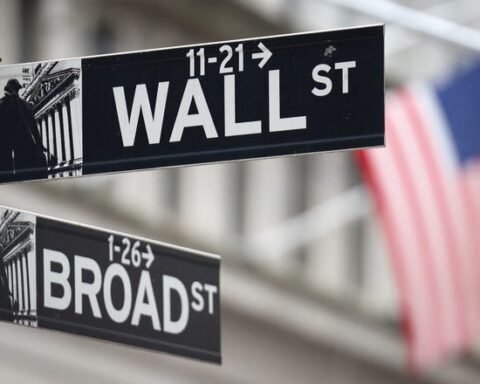
Berkshire Hathaway’s Cash Pile Hits Record $325 Billion as Buffett Scales Back on Apple, Bank of America Holdings
Strategic stock sales and rising insurance costs impact earnings, signaling a cautious approach amid economic uncertainty
·

Despite record cash reserves, Berkshire posts a decline in operating profit amid rising insurance costs and strategic stock sales
In the third quarter of 2024, Berkshire Hathaway, led by famed investor Warren Buffett, made significant shifts in its investment approach, ramping up its cash reserves to an unprecedented $325.2 billion while pulling back from long-time stock holdings, including Apple and Bank of America. These moves highlight a strategic pivot in Berkshire’s portfolio, as the company braces for uncertainties in the market while maintaining a conservative stance on new investments.
Berkshire’s decision to sell approximately 100 million Apple shares—around 25% of its position—follows a broader trend for the company this year, with total Apple share sales now exceeding 600 million. Despite this reduction, Apple remains Berkshire’s single largest stock holding, valued at roughly $69.9 billion. The sale of Apple shares, along with several billion dollars’ worth of Bank of America stock, comprised much of the $36.1 billion in stock sales during the quarter. Buffett had previously stated that Apple would continue as Berkshire’s largest stock investment but noted that selling was prudent given the favorable capital gains tax rate.
Meanwhile, Berkshire’s total operating profit dropped 6% to $10.09 billion, attributed primarily to a 69% fall in insurance underwriting profit. This decrease was largely driven by increased claims, losses linked to Hurricane Helene, and a significant payout from a court settlement concerning former talc supplier Whittaker Clark & Daniels. The setbacks in the insurance segment overshadowed solid gains from Geico, which nearly doubled its underwriting profit due to reduced accident claims and operating costs. BNSF Railroad and Berkshire Hathaway Energy also contributed positively to operating results, with BNSF shipping more consumer goods and Berkshire Energy benefiting from lower operating expenses.
Looking ahead, Berkshire projects an additional $1.3 billion to $1.5 billion in pre-tax losses for the fourth quarter related to Hurricane Milton, which struck Florida in October. These forecasts underscore the conglomerate’s vulnerability to unpredictable insurance liabilities, even as its other businesses—ranging from industrial manufacturing to retail—remain on solid ground.
The company’s quarterly report also revealed that Berkshire made only modest stock purchases of $1.5 billion in the third quarter, continuing a trend as a net seller of stocks for the eighth consecutive quarter. Notably, Berkshire did not repurchase any of its own stock, an indicator that Buffett does not consider the shares to be undervalued. This restrained approach reflects Buffett’s caution amid a shifting economic landscape, with the possibility of higher tax rates on the horizon.
Berkshire’s overall net income soared to $26.25 billion, reversing a $12.77 billion loss from the same period a year ago. This swing in net income is primarily attributed to accounting rules requiring Berkshire to report unrealized investment gains and losses—a metric that Buffett has long urged investors to overlook due to its inherent volatility. Instead, he argues that operating results offer a more accurate gauge of the company’s financial health and stability.
Under Buffett’s leadership since 1965, Berkshire has grown into a powerhouse with diversified holdings across energy, insurance, railways, and consumer goods. As Buffett, now 94, prepares for an eventual leadership transition to Vice Chairman Greg Abel, 62, Berkshire Hathaway remains well-positioned for the future with its hefty cash reserves and disciplined investment strategy.
The Omaha-based conglomerate’s impressive cash holdings and strategic divestitures signal a careful approach to navigating market uncertainties, showcasing Buffett’s enduring influence on Berkshire’s conservative yet adaptive philosophy.
Post Views: 153
- Trump’s New Tariff Order on Canadian Imports Sends Shockwaves Through the Stock Market
- Timothée Chalamet and Kylie Jenner Spotted Sharing a Kiss at the BNP Paribas Open, Fueling Romance Rumors
- Trump Shows Support for Musk Amid Struggles: “I’ll Buy a Tesla to Back Elon”
- Millie Bobby Brown Speaks Out Against ‘Horrible’ Media Coverage: “I Will Not Be Shamed”
BUSINESS
CEO INSIDER
This error message is only visible to WordPress admins
Error: No feed with the ID 1 found.
Please go to the Instagram Feed settings page to create a feed.














